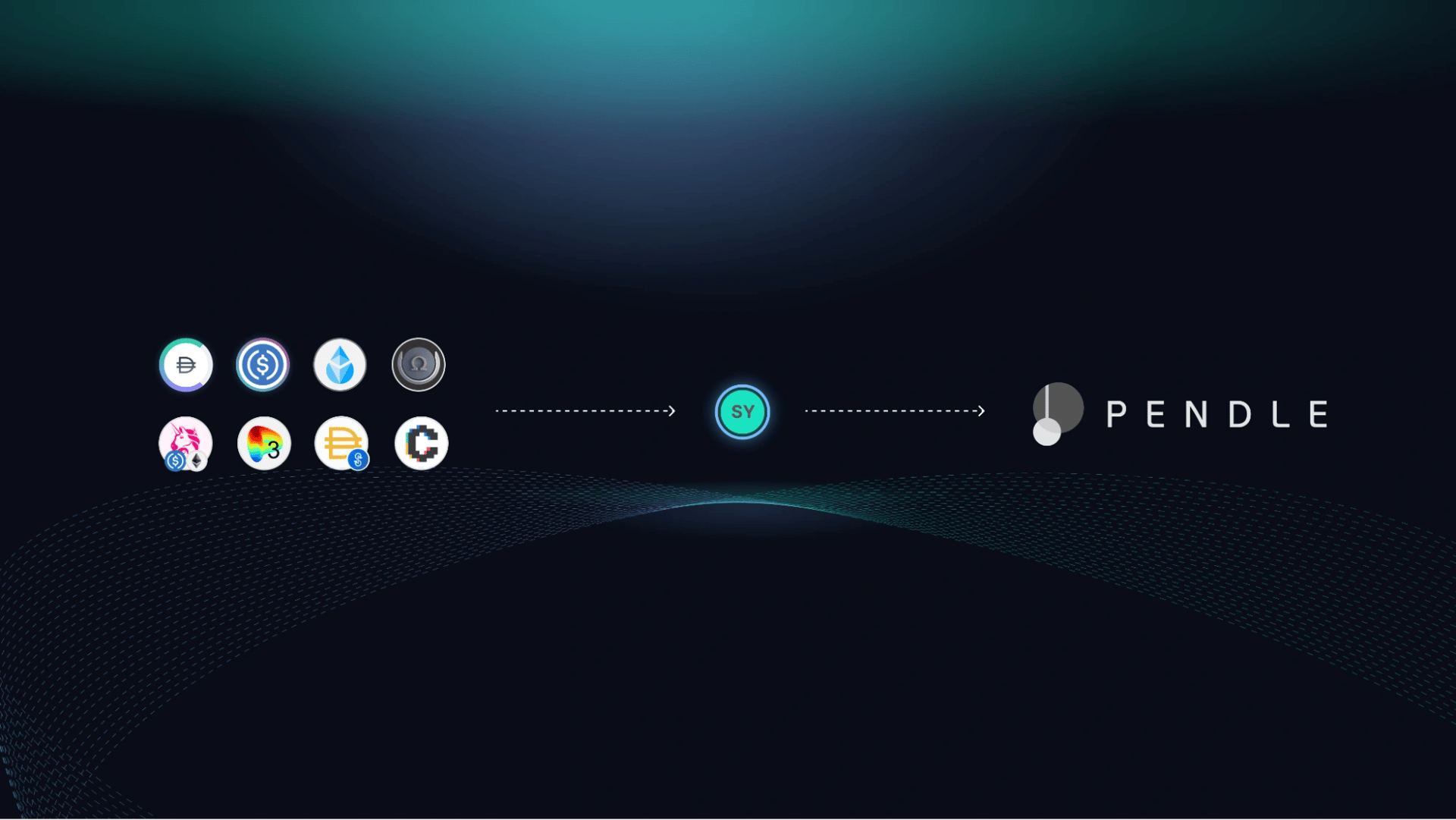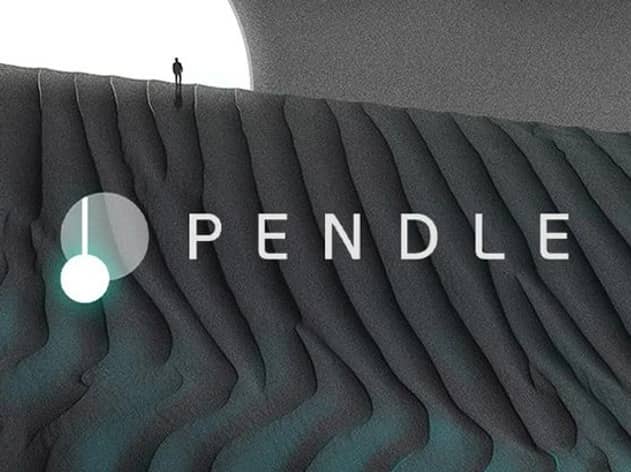Subscribe to wiki
Share wiki
Bookmark
Pendle Finance
The Agent Tokenization Platform (ATP):Build autonomous agents with the Agent Development Kit (ADK)
0%
Pendle Finance
Pendle Finance is a Decentralized Finance protocol that allows users to tokenize and sell future yields. It helps users generate additional yield and lock in future yield upfront while offering traders direct exposure to future yield streams without the need for underlying collateral. [1]
Overview
Pendle Finance is a decentralized protocol that enables the trading and management of yield from yield-bearing assets. Launched in October 2020, users can tokenize future yield by wrapping assets from protocols like Aave and Compound into standardized yield tokens (SY). These SY tokens are then split into principal tokens (PT) and yield tokens (YT), enabling users to separate and trade the underlying principal and its future yield. This process introduces a DeFi-native form of yield derivatives, allowing for more advanced yield strategies.
Pendle’s automated market maker (AMM) is designed to support tokens with depreciating time value, making it suitable for fixed-income and yield-based trading. The platform also features governance through vote-escrowed PENDLE (vePENDLE) tokens. Pendle continues to expand its ecosystem by supporting real-world assets (RWAs) like sDAI and fUSDC, aiming to bridge traditional finance and DeFi. Through tools such as fixed yield, yield speculation, and structured yield exposure, Pendle targets retail and institutional users seeking to manage yield volatility or access new financial primitives. [3] [12]
Features
Yield Tokenization
Yield tokenization is the process of separating a yield-bearing asset into two components: principal and yield. In Pendle, this begins by wrapping the original asset into a standardized yield token (SY) that can interact with the protocol's AMM. The SY token is then split into a principal token (PT) representing the original asset value and a yield token (YT) representing the future yield. This separation allows users to independently trade, manage, or speculate on each component. [12]
SY

SY is a standardized token format that wraps yield-bearing assets to provide a unified interface for use in smart contracts. The system standardizes their behavior by converting yield-generating tokens—such as stETH, cDAI, and yvUSDC—into their SY equivalents, allowing them to integrate seamlessly with Pendle’s infrastructure. SY is the primary interface through which Pendle accesses yield-bearing assets, enabling the minting of principal (PT) and yield (YT) tokens and supporting trading between SY and PT in Pendle’s AMM.
Although SY operates in the background, Pendle automates the wrapping and unwrapping processes, so users interact directly with the original tokens. Beyond Pendle, the SY standard is intended to support broader composability in DeFi, allowing other protocols and developers to integrate yield-bearing tokens more easily without requiring custom solutions. [13]
PT
Principal Token (PT) represents the principal portion of a yield-bearing asset after it has been separated from its yield. Each PT corresponds to a specific accounting asset—such as stETH, ETH, or USDC—used in protocols like Lido, Renzo, or Aave. At maturity, PT can be redeemed on a 1:1 basis for the underlying accounting asset.
PT trades at a discount before maturity because the yield has been separated into a different token. As the maturity date approaches, the value of PT gradually aligns with the full value of the underlying asset. This price appreciation defines the fixed yield return that PT holders can expect over time. [14]
YT
Yield Token (YT) represents the yield portion of a yield-bearing asset after tokenization. When users hold YT, they receive the yield generated by the underlying asset over time, up until maturity. The ongoing yield received corresponds to the “Underlying APY,” which reflects the actual return rate from the original asset.
The market value of YT declines over time and eventually reaches zero at maturity, as it no longer entitles the holder to any future yield. Profit is realized when the total yield earned exceeds the purchase cost of the YT. The market’s pricing of YT, referred to as the “Implied APY,” represents the expected yield rate. If the actual yield (Underlying APY) ends up being higher than this implied rate, the YT holder benefits. Yield is distributed in the SY format and can be returned to the original token by unwrapping it. [15]
Liquidity Engines
Pendle V2
Pendle V2 is an automated market maker (AMM) designed specifically for yield trading. It optimizes liquidity around the unique behavior of Principal Tokens (PT) and Yield Tokens (YT). It adapts a model from Notional Finance but adjusts the curve to reflect how PT value trends toward its underlying asset as maturity approaches. This allows liquidity to concentrate in a narrow, relevant price range, improving capital efficiency.
Pendle V2 uses a pseudo-AMM structure that supports PT and YT trades through a single PT/SY liquidity pool, where SY is the standardized wrapped version of a yield-bearing token. YT swaps are handled via flash swaps within the same pool, allowing seamless, capital-efficient trading. Liquidity providers (LPs) earn from PT appreciation, SY’s yield, swap fees, and additional incentives. Auto-routing enables interaction with various major tokens without manual steps.
Pendle V2 also introduces features to mitigate impermanent loss (IL) by designing the AMM curve to track PT's natural appreciation. Because PT and SY are highly correlated, IL is minimized, especially when liquidity is held to maturity. The AMM is customizable, letting liquidity concentrate within a known yield range for each asset, which improves slippage control and supports larger trades. In cases where market conditions push yield beyond the preset range, trading may be constrained. Pendle V2’s unified liquidity structure means LPs earn fees from both PT and YT trades in the same pool, and traders benefit from greater depth and lower slippage. Upon maturity, LPs can exit positions, redeem PT, unwrap SY, and claim rewards in a single transaction. [5] [16]
Order Book
Pendle integrates an Order Book system alongside its AMM to support peer-to-peer trading of Principal Tokens (PT) and Yield Tokens (YT). This feature allows users to place limit orders based on a desired implied APY. When the AMM’s implied APY moves toward the order’s specified rate, incoming swap orders will fill the limit order first, deepening liquidity at that rate before affecting the AMM. Orders can be fully or partially filled depending on available wallet balance, token allowances, and gas efficiency. Flash swap functionality between PT and YT increases flexibility, enabling cross-matching between PT and YT orders.
Only the corresponding yield-bearing asset can be used for limit orders. Orders become invalid if the wallet balance or token allowance is insufficient or zero. Setting a limit order requires a signature, while cancellation involves an on-chain transaction. Swap fees on limit orders are the same as AMM swaps, with maker orders incurring no fee for now. Fee revenue is distributed in ETH to vePENDLE voters. An arbitrage bot actively maintains pricing consistency between the AMM and Order Book by correcting price discrepancies as they arise. [17]
Boros
Boros is a new platform developed by Pendle to extend yield trading into previously inaccessible areas, including off-chain and margin-based yield strategies. Initially introduced as Pendle V3, Boros enables capital-efficient yield trading across various yield sources, focusing on crypto funding rates—an essential but underutilized market segment. By allowing users to trade funding rates, Boros aims to give traders more control and precision in managing yield exposure.
The platform introduces a new base system that operates alongside Pendle V2, which continues to be supported. Boros is designed for institutional and large-scale use cases, such as hedging funding rate volatility in high-capital protocols. It provides tools for locking fixed funding returns or speculating on rate movements using leverage. While its initial focus is on perpetual funding rates, Boros sets the foundation for broader yield market applications across decentralized and traditional finance. [18]
PENDLE
PENDLE is the native token of the Pendle Finance protocol for incentives and governance. Liquidity providers receive PENDLE rewards alongside a share of trading fees. At the same time, users can stake PENDLE to obtain vePENDLE, which grants voting rights and allows for reward boosting within the system. [8] [19]
Tokenomics
PENDLE has a total supply of 235.8M tokens and has the following distribution: [20]
- Circulating: 65.1%
- Ecosystem Fund: 19.2%
- Incentives: 10%
- Team: 5.7%
vePENDLE
Pendle Finance uses vote-escrowed PENDLE (vePENDLE) as its governance model, enabling users who lock their PENDLE tokens to participate in protocol decision-making. The amount of voting power is based on the duration and size of the lock, and it decays over time unless renewed. vePENDLE holders can vote to allocate incentives to specific liquidity pools, influencing how rewards are distributed across the platform.
In addition to governance rights, vePENDLE provides several benefits: holders earn a share of swap fees from the pools they vote for, receive base staking rewards, and can boost liquidity mining yields by up to 2.5x. The system also acts as a supply sink, reducing circulating PENDLE and contributing to the protocol's long-term sustainability. [4]
Fundraising
2021
Pendle Finance announced successful fundraising in April 2021, led by Mechanism Capital. They were able to raise $3.7M in their private round, with support from the following funds and individuals: Crypto.com Capital, Hashkey Capital, Spartan Group, CMS, imToken, DeFi Alliance, Lemniscap, LedgerPrime, Parataxis Capital, Strategic Round Capital, Signum Capital, Harvest Finance, Youbi, Sora Ventures, D1 Ventures, Fisher8, Origin Capital, BitLink, Bitscale Capital, Hongbo, co-founder & CEO of DeBank, and Taiyang Zhang, co-founder & CEO of Ren Protocol. [8]
2023
In August 2023, Binance Labs announced an undisclosed investment in Pendle Finance. The funding secured by the Pendle Finance team will be allocated towards expanding to multiple blockchain networks, specifically catering to retail and institutional users. The co-founder and CEO of Pendle Finance, TN Lee, stated that they intend to leverage Binance Labs' extensive expertise and resources to expand their operations. Binance Labs highlighted that Pendle's fixed yield offering would play a crucial role in the project's development, particularly as it traditionally serves as a fundamental component for institutional hedging. [9]
In November 2023, Spartan Capital made an additional investment in Pendle Finance through an over-the-counter (OTC) purchase, although the investment size was not disclosed. Spartan Capital highlighted Pendle's growth, citing data from DefiLlama showing a more than 2,000% increase in total value locked (TVL) over the year since November 2022. They expressed confidence in Pendle’s solutions, such as Liquid Staking Derivatives and Real World Assets, to attract more off-chain capital to the industry. [11] [8]
Partnerships
- Abra
- Crypto.com Capital
- Hashkey Capital
- Signum Capital
- Alliance
- Binance Labs
- L1D
- Maelstrom
- Mechanism Capital
- Spartan
See something wrong?
The Agent Tokenization Platform (ATP):Build autonomous agents with the Agent Development Kit (ADK)
